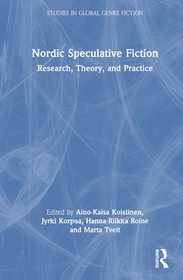
Addiction and the Captive Will
A Colloquy between Neuroscience and Augustine of Hippo
Sorozatcím: T&T Clark Enquiries in Theological Ethics;
-
20% KEDVEZMÉNY?
- A kedvezmény csak az 'Értesítés a kedvenc témákról' hírlevelünk címzettjeinek rendeléseire érvényes.
- Kiadói listaár GBP 28.99
-
13 849 Ft (13 190 Ft + 5% áfa)
Az ár azért becsült, mert a rendelés pillanatában nem lehet pontosan tudni, hogy a beérkezéskor milyen lesz a forint árfolyama az adott termék eredeti devizájához képest. Ha a forint romlana, kissé többet, ha javulna, kissé kevesebbet kell majd fizetnie.
- Kedvezmény(ek) 20% (cc. 2 770 Ft off)
- Kedvezményes ár 11 080 Ft (10 552 Ft + 5% áfa)
Iratkozzon fel most és részesüljön kedvezőbb árainkból!
Feliratkozom
13 849 Ft

Beszerezhetőség
Még nem jelent meg, de rendelhető. A megjelenéstől számított néhány héten belül megérkezik.
Why don't you give exact delivery time?
A beszerzés időigényét az eddigi tapasztalatokra alapozva adjuk meg. Azért becsült, mert a terméket külföldről hozzuk be, így a kiadó kiszolgálásának pillanatnyi gyorsaságától is függ. A megadottnál gyorsabb és lassabb szállítás is elképzelhető, de mindent megteszünk, hogy Ön a lehető leghamarabb jusson hozzá a termékhez.
A termék adatai:
- Kiadó T&T Clark
- Megjelenés dátuma 2025. december 11.
- Kötetek száma Paperback
- ISBN 9780567713568
- Kötéstípus Puhakötés
- Terjedelem oldal
- Méret 234x156 mm
- Nyelv angol 700
Kategóriák
Rövid leírás:
Presents a dialogue between the Augustine's Confessions and three modern neuroscientific models of addiction on the doctrine of the captivity of the will.
TöbbHosszú leírás:
Twenty-first century neuroscience has discovered that in some severe cases, addiction may so constrain human freedom that the will is only able to choose to use substances of abuse. At this advanced stage, substance use has become the primary driver of salience, co-opting
and subsuming other moral priorities and human rewards. Scholars have investigated Aristotle's concept of akrasia as an ancient mirror of this understanding and there have been some preliminary discussions of Augustine's concept of the divided will as it bears on addiction.
No detailed and comprehensive exploration of the work of Augustine has yet been undertaken as it relates to three contemporary models of addiction: the choice, learning, and brain disease models. Augustine's psychological awareness, his mastery of ancient theological and philosophical thinking, and his enormous and enduring influence on both Catholic and Protestant theology, make him an ideal subject for such research. This incisive book argues that Augustine's doctrine of the captive will offers a theological parallel of each of these contemporary models of addiction.
Tartalomjegyzék:
Chapter 1
Eternal Questions
Part I: The Historical and Philosophical Review of the Models of Addiction
Chapter 2
Models and Methods in Addictionology
Chapter 3
The Moral Model of Addiction
Chapter 4
The Disease Model of Addiction
Chapter 5
The Brain Disease Model of Addiction
Chapter 6
The Backlash Against the Brain Disease Model and the Rise of Alternative Models
Part II: Phenomenology of the Confessions
Chapter 7
Books I through IV: Augustine the Lost Seeker
Chapter 8
Books V through VII: Augustine's Intellectual Conversion
Chapter 9
The Conversion of the Will: Books VIII through IX
Chapter 10
The Conversions of Memory: Books X through XIII
Part III: Theological Analysis
Chapter 11
The Captivity of the Will
Chapter 12
Augustine, Sin, and the Models of Addiction
Chapter 13
Grace and the Models of Addiction
Chapter 14
The Colloguium between Augustine and Addiction
Bibliography
Index












